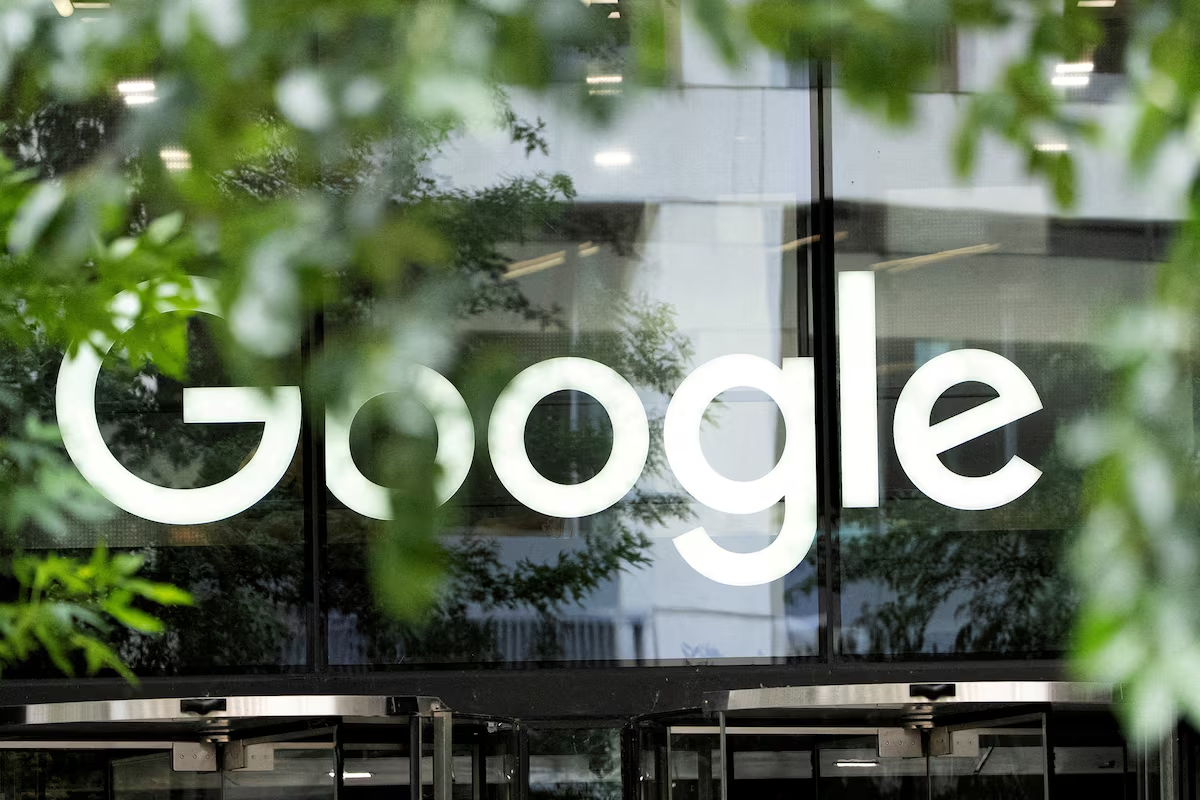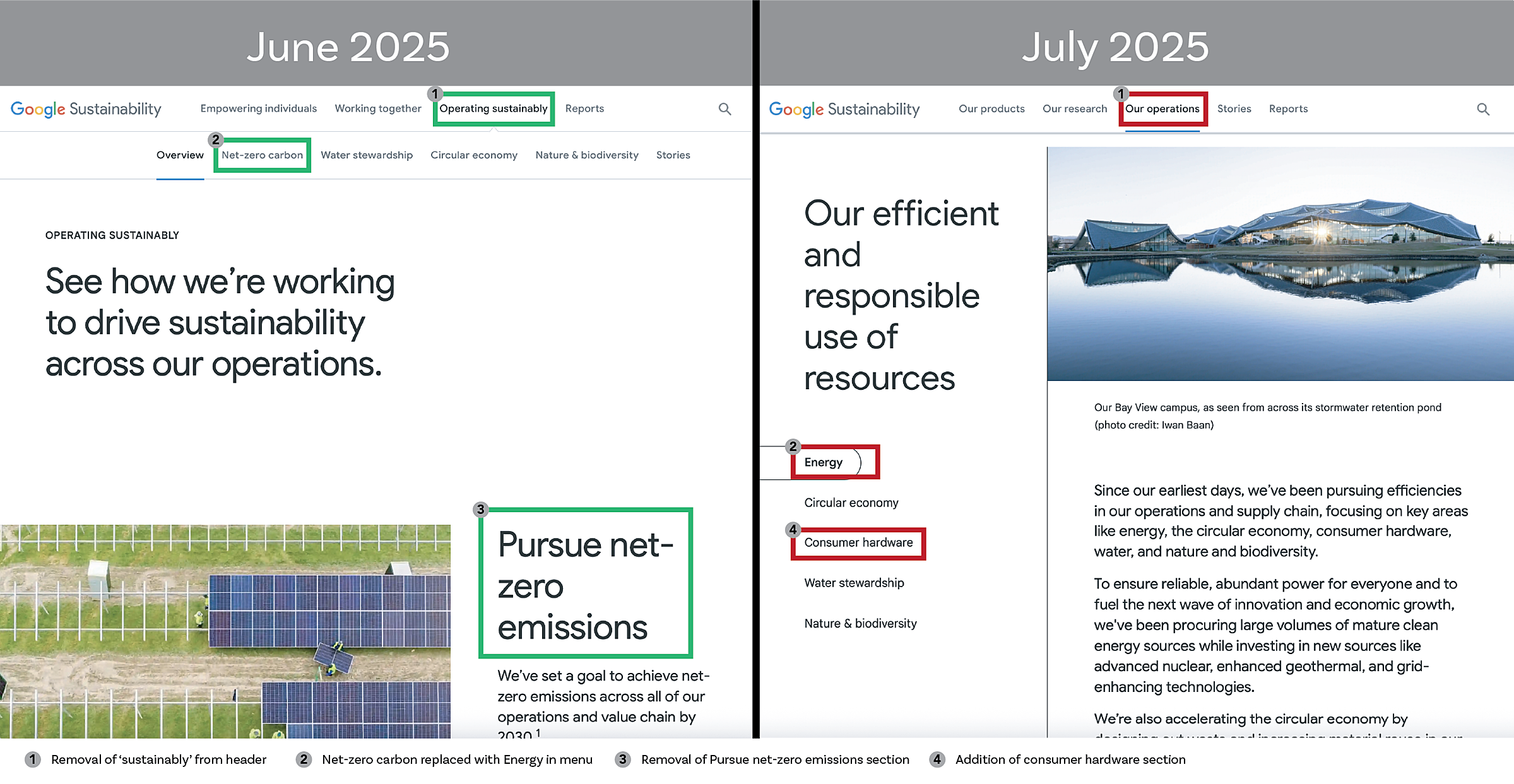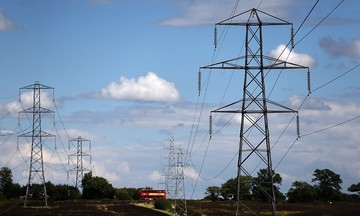This information, reported by Canada’s National Observer, came to light after they examined the edit history of Google’s official sustainability website.
Four years ago, Google pledged to achieve net zero emissions across its entire supply chain by 2030, using 2019 as a baseline.
“We have until 2030 to chart a sustainable course for our planet or face the worst consequences of climate change," Google CEO Sundar Pichai said in a 2020 video filmed in a lush California garden. He also declared that Google was entering its "most ambitious decade yet" in climate action.
 |
The Google logo outside the company's London office on 24/6. Photo: Reuters |
The Google logo outside the company's London office on 24/6. Photo: Reuters
However, Canada’s National Observer reports that Google quietly removed its net zero pledge from its website in July, likely due to a surge in electricity demand from AI data centers.
On the website, the "Operating sustainably" section has been renamed "Our operations," and the "Net-zero carbon" subsection has been deleted. "Energy" has been added in its place, becoming the top priority in Google’s sustainability efforts.
 |
A comparison of Google's sustainability website before and after the removal of the net zero pledge. Source: Canada’s National Observer |
A comparison of Google's sustainability website before and after the removal of the net zero pledge. Source: Canada’s National Observer
In response, a Google spokesperson stated that the company continues to work toward its climate ambitions. The representative cited the 2025 environmental report, adding that data center energy emissions decreased by 12% in 2024 due to increased use of clean energy.
Despite these efforts, the tech giant’s total emissions remain substantial. In 2024, Google emitted 11.5 million tons of CO2e, a 51% increase from the 2019 baseline. In its 2025 environmental report, Google acknowledged that operating the global infrastructure behind its products and services requires "a lot of energy." The company also explained that achieving its previous net zero ambition is now nearly impossible, partly due to expansion in the AI sector.
The report also revealed that Google’s annual electricity consumption increased by 26% in 2024 to 32.2 TWh, roughly equivalent to Ireland’s total consumption. Last month, Google released a technical report showing that one Gemini AI query consumes 0.24 Wh, comparable to watching TV for 9 seconds, and generates 0.033g of CO2e emissions.
“While we remain committed to our climate goals, it’s clear that achieving them is now more complex and challenging at every level, from local to global," Google’s 2025 environmental report states.
Clean energy technology analyst Michael Barnard points out that the growing electricity demand from AI is becoming incompatible with environmental commitments at some companies. This incompatibility is further complicated by Donald Trump’s reelection as US president and the reversal of many climate policies.
Barnard notes that Ruth Porat, Google’s Chief Investment Officer, supports expanding the use of "ultra-supercritical" coal plants and other fossil fuels to power the company’s future data centers. Pichai himself attended Trump’s inauguration, and Google donated $1 million.
However, Barnard also highlights that Google continues to sign corporate power purchase agreements for various renewable energy sources, including hydropower, offshore wind, and even advanced geothermal. "Google is in a difficult position," he says.
In contrast, the latest sustainability reports from other major tech companies like Microsoft and Amazon still prioritize net zero targets.
Bao Bao (via Canada’s National Observer)












